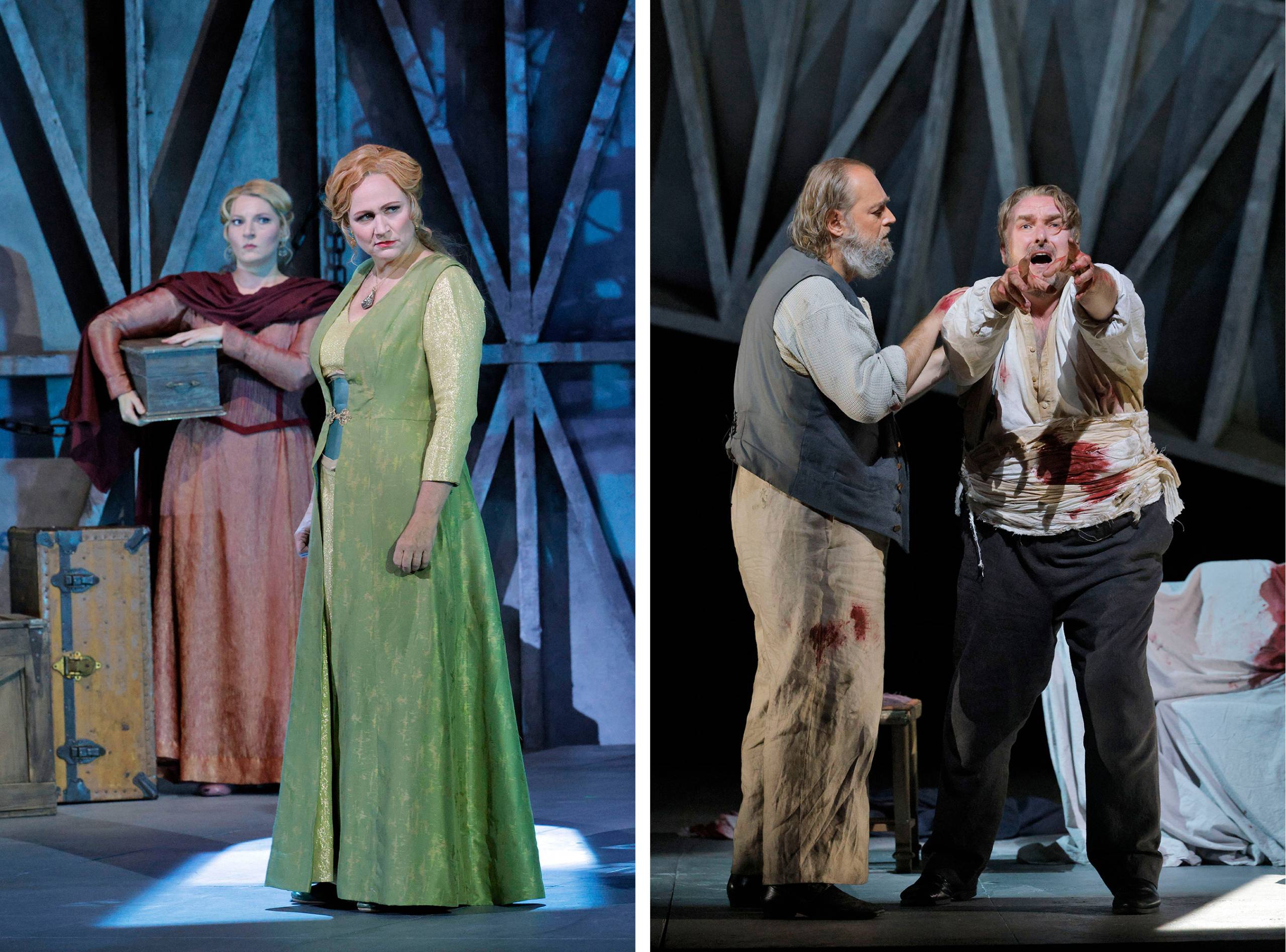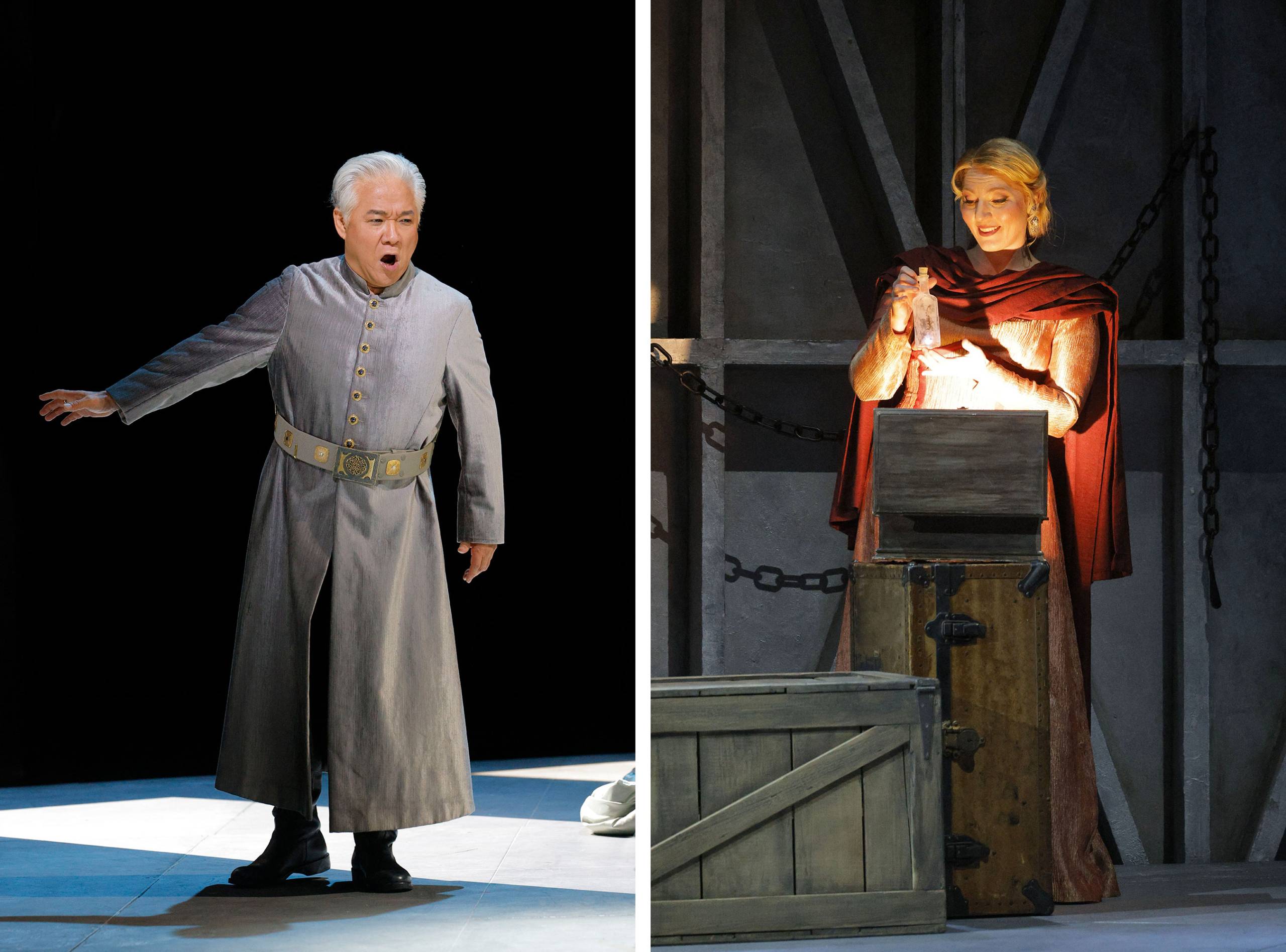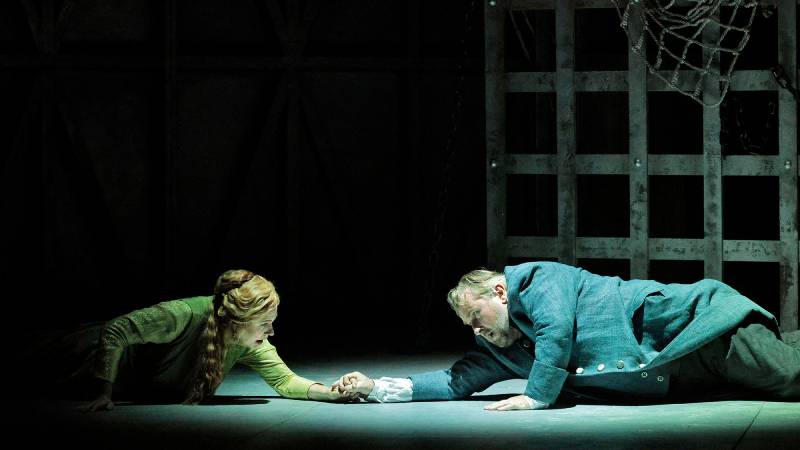If you’ve never spent five hours at the opera for a story that would ordinarily take three minutes to tell, are you even living? Enter Tristan and Isolde, Richard Wagner’s epic, tragic romance, with emphasis on epic — especially if you’re the couple who left the opera house last night at the three-hour mark, the wife muttering, “It’s just so long.”
At San Francisco Opera through Nov. 5, Tristan and Isolde is long, yes. (Two conductors have died while conducting it.) But like Wagner’s other great works, its effect is to warp time itself, stretching one’s mind and prying into the gaps. In Tristan, what it shovels into those chasms is reams of love, death, and drama. Like a certain candidate’s campaign speeches, its characters ruminate endlessly: about passion, about mortality, about painful yearning, even though the one they yearn for is standing right there, next to them, also inexplicably yearning.

If you don’t understand the attraction of this sort of thing, perhaps you never listened to The Smiths, or smoked cloves while bewailing the cruelty of the world with your dour-faced companions. At last night’s performance, halfway through Simon O’Neill’s tour de force in the third act as the dying-in-slow-motion Tristan, I started to think of the 19th-century Wagnerians as the original goth kids, flocking to the Bauhaus concerts of their day. An ardent burning love drives me from the fearful bliss of death, indeed.
In San Francisco, the set for this Tristan is bare bones; a framed wall hued in blue light signifies a ship, and a lone pruned, silver-painted tree substitutes for a garden. One could say this draws more focus on the performances, and their lengthy monologues that sometimes feel like recital anyway. No single singer steals the show here — Anja Kampe’s Isolde matches O’Neill scene-for-scene, Annika Schlicht (Brangäne) and Wolfgang Koch (Kurwenal) are excellent as their BFFs, and Kwangchul Youn sings King Marke with a strong, regal authority.

At the heart of it all is the music of Wagner, whose melodic approach and chord phrasings persist to this day; I hear them in Bernard Herrmann, McCoy Tyner and Radiohead. Kudos, then, to the orchestra. And can we take a moment to appreciate the gift San Francisco has in Eun Sun Kim at the podium? All the dynamism of the score comes alive under her baton, making it welcome news that she’s just signed a five-year extension. (Fittingly, she’s also committed to doing a Wagner opera each season, including an upcoming Ring cycle.)


